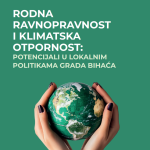Watchdog reports on Climate Financing
Watchdog reports on Resilience Response
-
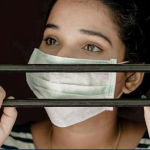 Gender-Sensitive Emergency Guide
Gender-Sensitive Emergency GuideRecent events have shown the diversity and intensity of natural and man-made crises and hazards in Albania. 2019 was a key year for the country as not only was the new Law No. 45/2019 adopted, which provides for civil protection responsibilities, but it was also the year of two powerful earthquakes on 21.09.2019 and 26.11.2019 respectively. This was followed by the global coronavirus (COVID-19) pandemic in 2020, which caused the loss of life of over 3400 Albanians. These key events have been accompanied by the permanent risks of floods, forest fires, extreme temperatures, droughts and landslides, which occur with periodic frequency throughout the country. According to the National Strategy for Disaster Risk Reduction (NSDR), data collected for trend analysis show that, in recent times, these "routine" incidents have transformed and become more frequent and large-scale emergencies or disasters for the country, and this is most likely due to the impacts of climate change.
-
 Monitoring report on GRB in 7 municipalities of Elbasan district, for the years 2023-2024
Monitoring report on GRB in 7 municipalities of Elbasan district, for the years 2023-2024The main objective of this study is to assess local programs and policies, the process of budgeting and approval of its items from a gender perspective and to determine further steps for taking measures to apply gender-responsive budgeting, taking into account the needs of all groups in need and in particular for overcoming gender barriers. This study was conducted by the Association “Elbasan Women’s Forum” (FGE) with the support of the Gender Alliance for Development Centre (GADC), within the framework of the project “An Overview of Gender Responsive Budgeting in 7 Municipalities of Elbasan County, for the years 2023-2024”, focusing on the budget analysis from a gender perspective in the Municipality of Elbasan, Gramsh, Belsh, Cerrik, Librazhd, Peqin and Prrenjas. This study was conducted by a working group composed of experts in gender issues, local policies and budget analysis. The Municipality of Elbasan is the first municipality in Albania to initially implement the principles of Participatory Budgeting in 2004 and then Gender Budgeting in 2009 with the support of the Elbasan Women’s Forum and then the Gramsh and Cerrik Municipalities. Budgeting is a method through which women and men influence local decision-making and the allocation of public resources to better reflect the needs and priorities of the community.
-
 How much does it cost and how much does it hurt? Social Decoding of Menstruation at Universities in Bosnia and Herzegovina
How much does it cost and how much does it hurt? Social Decoding of Menstruation at Universities in Bosnia and HerzegovinaThe MENGA (Menstrual and Gender Action) study is the first to be conducted at public universities in BiH with the aim of mapping the perceptions and attitudes of female students and teachers in BiH about menstruation, the availability of hygienic conditions and menstrual supplies at universities, the financial resources that women allocate for them, stigma, potential exposure to situations that imply menstrual poverty, taboos and menstrual superstitions they encounter, and attitudes about reducing and abolishing taxes on these products. The study included an analysis of aspects of shame, menstrual poverty, and attitudes towards menstruation in the personal lives of the respondents. It contributes to the discourse on menstruation, menstrual poverty, and public budgeting policies that very often neglect the needs of the female population of Bosnian and Herzegovina.
-
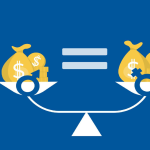 Gender budgeting as a transformative budget tool for municipal institutions
Gender budgeting as a transformative budget tool for municipal institutionsThe goal of this monitoring is to analyze the implementation of gender responsive budgeting in the municipality of Mitrovica and the commitment of relevant officials who adopt decisions for the fair and accountable distribution of the municipal budget for women and men. The objectives of this monitoring are: • Identifying and analyzing the budget distribution in terms of the allocation of social assistance services, subsidies, grants and scholarships, as well as budget allocations for certain services. • Analyzing the number of women and men who have benefited from a certain program or project within the municipal department or division of Mitrovica. • Ensuring that public finance management systems include gender budgeting processes. • Drafting key recommendations for drafting and improving policies and budgets from a gender perspective for the above-mentioned sectors, as well as for the budgeting process in general. • Raising awareness and increasing the participation of citizens/women in budget consultation meetings organized by the municipality. This report contributes to increasing the efficiency and transparency of municipal budget spending.
-
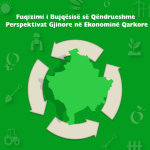 Empowering Sustainable Agriculture: Gender Perspectives within the Circular Economy
Empowering Sustainable Agriculture: Gender Perspectives within the Circular EconomyThe research highlights the gender mainstreaming approach within circular economy development policies in Kosovo. The analysis of the legal framework and development strategies shows that integrating circular economy principles into the agricultural sector can help improve living conditions for women and men in rural areas, creating a more equitable and sustainable environment for all. In this regard, policies and programs that promote the use of sustainable and circular economy practices in agriculture will not only contribute to environmental protection, but also to the economic and social empowerment of women. According to the European Institute for Gender Equality, agriculture and rural development are among the sectors where significant gender inequalities exist. Women in rural areas often face limited access to resources, including land and finance, and are under-represented in agricultural organizations and decision-making. Policies that encourage women’s involvement and address these inequalities can help create a more sustainable and inclusive agriculture.
-
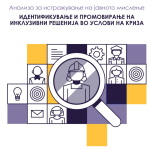 Analysis of public opinion research: Identifying and Promoting Inclusive Solutions In Crisis Conditions
Analysis of public opinion research: Identifying and Promoting Inclusive Solutions In Crisis ConditionsRecognizing the visible need for early inclusion in national and local policies is becoming an increasingly topical issue, especially in a dynamic society where measures and conditions in a crisis are constantly changing. In crisis situations, marginalized groups are those who are least affected as a result of the lack of access to resources, measures, policies and adequate support. Considering that the municipal budget represents an operational part of public policies, through a detailed interpretation of the reports and measures of local municipalities, we will analyze the percentage of youth representation, whether the programs are adequately accountable, and whether adequate allocation of budget funds has been made to align youth representation. This includes recognizing the need to reallocate resources to achieve equitable inclusion in accordance with the specific needs of men and women, distributing income and expenditures that will affect the social well-being of women and men and vulnerable categories of persons, and addressing the specific challenges that persons face.
-
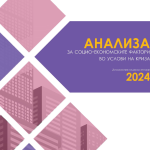 Analysis of the impact of socio-economic factors on the balance in the Southeast Planning Region
Analysis of the impact of socio-economic factors on the balance in the Southeast Planning RegionThe analysis is based on existing literature, reports and case studies. By identifying the gaps in current approaches to managing crises and disasters and the way in which the connection with socio-economic factors is established, this document aims to contribute to building more effective strategies for preventing and managing crises and disasters, in a way that should influence the reduction of the socio-economic vulnerability of communities to future crises and disasters in the IRR. Thus, the proposed measures and the draft action plan open the opportunity to create a consistent and comprehensive approach to disaster and crisis management and building community resilience.
-
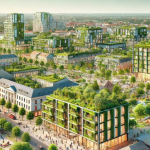 Analysis Report on the Design & Implementation of the Green City Action Plan (GCA) of Balti municipality from a gender perspective
Analysis Report on the Design & Implementation of the Green City Action Plan (GCA) of Balti municipality from a gender perspectiveThis report aims to assess the design and implementation of the Green City Action Plan (GCAP) from a gender perspective, in order to provide a detailed analysis of how this plan contributes to promoting equal opportunities and empowering women in Balti. Mainstreaming the gender dimension into all aspects of the Green City Action Plan (GCAP) can contribute to achieving more effective local governance and promoting more inclusive and sustainable socio-economic development. It will also ensure that Balti municipality becomes a model of a green and equitable city, where all citizens benefit from equal opportunities and a healthy and sustainable environment. Thus, monitoring the GCAP from a gender perspective will allow the identification and implementation of best practices to ensure that local policies and programs respond to the needs and priorities of all citizens, regardless of gender.
-
 Addressing Gender Inequalities in Access to Finance in Agriculture: Analysis of Causes and Recommendations for Inclusive Policies and Programs in the Republic of Moldova
Addressing Gender Inequalities in Access to Finance in Agriculture: Analysis of Causes and Recommendations for Inclusive Policies and Programs in the Republic of MoldovaThis report addresses gender inequalities in access to finance in the agricultural sector in the Republic of Moldova, an issue with significant implications for sustainable and equitable rural development. The study is relevant to a wide range of stakeholders, including policymakers, donor organizations, civil society, and the farming community. The study is based on a mixed methodological approach, combining quantitative and qualitative, primary and secondary data. Key findings ■ Women own a significantly lower share of agricultural land (19%) and face limited access to irrigation and advice, which affects their productivity and competitiveness. Complex application procedures, unadapted requirements, and eligibility issues create specific barriers for women farmers in accessing finance. Lack of awareness of financing opportunities and bureaucratic procedures discourage many women from applying for financial support. ■ Gender mainstreaming in agricultural development policies and programmes is insufficient, with gaps in setting specific objectives, measures and indicators. The study highlights the persistence of significant gaps and barriers in women’s access to finance in the agricultural sector, with major implications for their socio-economic situation and for rural development as a whole. The findings underline the need for transformative interventions that address gender inequalities systemically and promote equitable access to resources, services and opportunities.
-
 Gender Analysis of the Budget of the Municipalities of Bratunac and Vlasenica & The Situation in Agriculture in the Municipalities of Bratunac and Vlasenica
Gender Analysis of the Budget of the Municipalities of Bratunac and Vlasenica & The Situation in Agriculture in the Municipalities of Bratunac and VlasenicaBased on the identified challenges in the economic and food context, especially in relation to the impact of climate change on women in rural areas, we emphasize the necessity of immediate action through the implementation of gender-responsive measures. These project-oriented municipalities have funds in their budgets intended to support women in rural areas. Specifically, funds from item 415200 (about 200,000 KM) for agricultural development and the provision of professional assistance, as well as funds from item 511200 (about 250,000 KM) for rural infrastructure. By analyzing existing practices, we have noticed that these allocations are not aligned with the real needs of women and men in rural areas, and it is also impossible to determine how gender-responsive these allocations are. Therefore, we are currently working on a project that aims to develop a regulation with clear and gender-responsive criteria for the allocation of funds for agricultural development and rural infrastructure. This project will not only improve the alignment between planned allocations and actual needs, but will also create opportunities for more self-employment for women in rural areas. Our goal is to achieve economic stability not only for women, but also for their families and the entire rural community.
-
 Gender Responsive Budgeting in the Field of Professional Rehabilitation and Employment, Social and Child Protection
Gender Responsive Budgeting in the Field of Professional Rehabilitation and Employment, Social and Child ProtectionThis Policy Brief succinctly presents the main findings of the GRB Analysis and recommendations that need to be implemented by competent institutions in the fields of professional rehabilitation and employment of PWDs, social and child protection, and gender equality. Recommendations for particular actions and measures to be taken to attain gender equality in the areas of professional rehabilitation and employment, as well as social and child protection of PWDs, were defined based on the GRB Analysis. Based on the recommendations, specific legal norms are developed to amend the Law on Professional Rehabilitation and Employment of Persons with Disabilities and the Law on Social and Child Protection, the adoption of which would enable the application of the GRB principle in these areas. MNE version available here: https://gbwn.net/wp-content/uploads/2025/05/Policy-Brief-mne-210x297-3mm.pdf
-
 Disaster management with a Gender Perspective
Disaster management with a Gender PerspectiveIntroducing a gender perspective into the analysis of crisis situations is a key step towards understanding the complex ways in which crises affect different social groups. Crisis situations, whether caused by natural disasters, conflicts, pandemics or economic crises, have different consequences for women, men, children and marginalized groups. This analysis aims to explore how gender affects people's experiences during crises, how gender inequalities can be reduced and how to ensure that responses to crises are equitable and comprehensive. By considering different aspects of gender dynamics in crisis situations, this study seeks to provide deeper insight and concrete recommendations for policies and practices that will improve the resilience and security of all social groups.
-
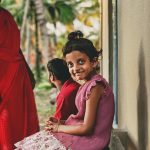 Gender Analysis of the Circular Economy in Novi Bečej
Gender Analysis of the Circular Economy in Novi BečejThe Gender Analysis for the Roma Association Novi Bečej aims to provide a detailed insight into the current state of gender equality in the Roma community in Novi Bečej, with a special focus on the position of women, including Roma women. This analysis will identify key challenges women face, examine their access to resources and services, and provide recommendations for improving their economic position in society. Given the increasing challenges related to climate change and emergencies, it is particularly important to understand how these factors affect women and what measures are necessary to ensure their safety and well-being. Differences in socio-economic status between urban and rural areas, as well as between different groups of women, are an important aspect that the analysis will cover in order to better understand and address these problems.
-
 Results of the analysis on strengthening accountability and gender-sensitive responses of local authorities to crises in three Western Balkan countries
Results of the analysis on strengthening accountability and gender-sensitive responses of local authorities to crises in three Western Balkan countriesThe Women's Association "Priroda" from Bratunac (BiH), Journalists for Human Rights from Skopje (North Macedonia) and the Bečej Youth Association from Bečej (Serbia) conducted a study on the impact of the economic crisis on equal opportunities and gender equality. Based on the analysis of the study, a platform for action is being created, with defined steps for campaigns in each country and in the region. The research activities were: setting up a methodology, developing a questionnaire, conducting the study, processing and publishing and providing recommendations for action based on the study findings. The direct target groups of the study were 24 local governments in Bosnia and Herzegovina, North Macedonia and Serbia (eight in each), and a total of 168 local government representatives and a total of 480 surveyed citizens, of which 240 were women from marginalized groups. Focus groups were conducted with representatives of 24 municipalities and the same number of civil society organizatons, most of whom were women's associatons.
-
 Inclusion of a gender perspective in planning and managing emergency and crisis situations at the local level in Berovo, Kavadarci and Kocani
Inclusion of a gender perspective in planning and managing emergency and crisis situations at the local level in Berovo, Kavadarci and KocaniThis report is divided into two parts. The first part analyzes the legal obligations of municipalities in terms of laws and bylaws related to Protection and Rescue, Crisis Management and Gender Equality, as well as an analysis of local plans in the municipalities of Berovo, Kocani and Kavadarci. The second part of the report is dedicated to research on the use of fire extinguishers in primary schools in the three municipalities and a brief analysis of the plans and budgets for fire protection in the municipalities, as a sector where relevant information can be found and linked to the findings of the research in schools.
-
 Gender Budget Analysis of Niksic Municipality
Gender Budget Analysis of Niksic MunicipalityThis research about Gender Analyze of local budget led to the initiative about establishing of Local Team for GRB included in Draft of LAP for GE in municipality Niksic. Achieved results: R1. Strengthened capacities of employees in local self-government and improved implementation of gender equality policies through the application of ROB when creating the budget of local self-government. R2: Strengthened capacities of women with disabilities on gender equality, gender budgeting and increased monitoring of gender-responsive budgeting in the local parliament. R3: Analysis of the gender component of the current budget was carried out Secretariat for Finance and Secretariat for Spatial Planning ecology in the municipality of Nikšić. R4: An agreement was reached with the local self-government on the formation of a team for gender-responsive budgeting, which will be part of the budget drafting group. (referred initiative)
-
 Gender Analysis and Review of Legal and Financial Strategic Documents
Gender Analysis and Review of Legal and Financial Strategic DocumentsMainstreaming a gender perspective into mainstreaming, policies and practices implies the (re)organization, improvement, development and evaluation of general policies, strategies and programs, in order for the gender perspective to be included at all levels and in all phases by the actors involved in the creation of policies for the achievement of de facto equality. The main goal is to ensure that men and women have equal opportunities and benefits from social resources, opportunities and benefits. Mainstreaming a gender perspective into mainstreaming does not just mean adding a female component, but it means bringing the experience, knowledge and interests of women and men into the development agenda.

